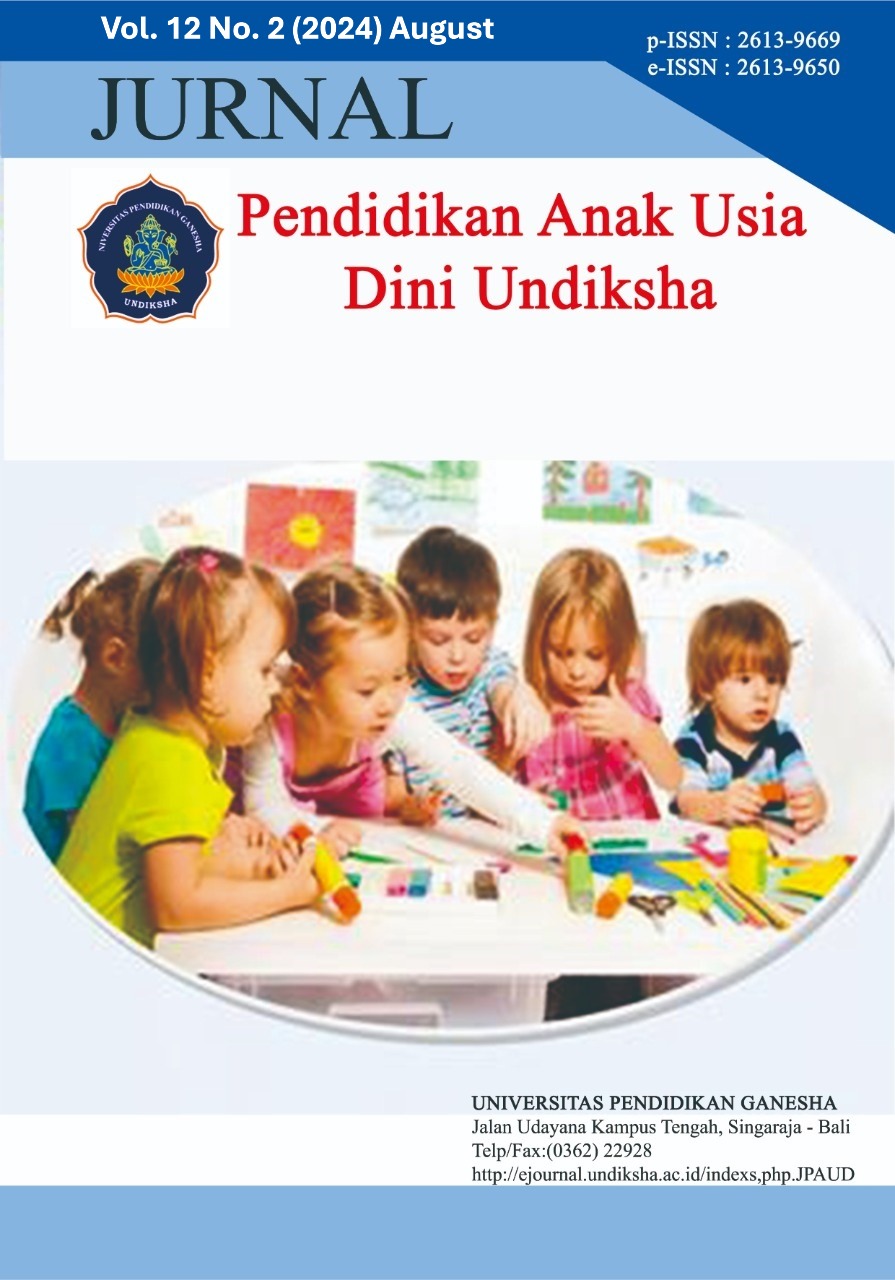Game LoP: Fostering Logical-Mathematical Intelligence in Early Childhood
DOI:
https://doi.org/10.23887/paud.v12i2.80858Keywords:
Early Childhood, Gamification, Logical-Mathematical.Abstract
Logical-mathematical intelligence is one of the essential skills that early childhood must develop to support their future educational journey. However, many children are reluctant to learn logical mathematics as it is often perceived as difficult to understand. To address this issue, an educational medium in the form of an educational game is needed to attract children's interest in learning logical mathematics. This study aims to evaluate the effectiveness of the educational media Game LoP in enhancing early childhood logical-mathematical skills. The research employs a quasi-experimental design involving pretest-post-test and control group comparisons. Research instruments include pretest and post-test assessments analyzed using paired t-tests and independent t-tests. The findings reveal a significant difference in early logical-mathematical abilities between the control and experimental groups following the implementation of Game LoP. Additionally, there was a notable improvement in the logical-mathematical abilities of children using this educational medium. Therefore, Game LoP has been proven to yield positive and significant outcomes in enhancing early childhood logical-mathematical skills. This study implies that the application of Game LoP can serve as an innovative solution to support the development of children's logical-mathematical intelligence.
Published
How to Cite
Issue
Section
License
Copyright (c) 2024 Widi Wulansari, Epritha Kurnia Wati

This work is licensed under a Creative Commons Attribution-ShareAlike 4.0 International License.
Authors who publish with the Jurnal Pendidikan Anak Usia Dini Undiksha agree to the following terms:
- Authors retain copyright and grant the journal the right of first publication with the work simultaneously licensed under a Creative Commons Attribution License (CC BY-SA 4.0) that allows others to share the work with an acknowledgment of the work's authorship and initial publication in this journal.
- Authors are able to enter into separate, additional contractual arrangements for the non-exclusive distribution of the journal's published version of the work (e.g., post it to an institutional repository or publish it in a book), with an acknowledgment of its initial publication in this journal.
- Authors are permitted and encouraged to post their work online (e.g., in institutional repositories or on their website) prior to and during the submission process, as it can lead to productive exchanges, as well as earlier and greater citation of published work. (See The Effect of Open Access)











